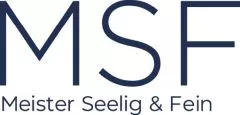- with readers working within the Banking & Credit industries
The new year is almost upon us. While business owners are focused on finishing out 2024, they must also prepare for changes to various employment laws that will take effect on January 1, 2025.
Increases to New York Minimum Wage and Minimum Salaries
New York's minimum wage is set to go up by fifty cents, to $16.50 per hour in New York City, Westchester, and Long Island ("downstate"), and to $15.50 per hour in the rest of the state. This increase also means that overtime rates will have to be adjusted accordingly for minimum wage workers, to $24.75 for every hour worked over 40 for those working downstate, and to $23.25 per overtime hour for those working in the rest of the state.
In addition, the minimum salary for exempt employees, i.e., those whose earnings and job duties exempt them from earning overtime, will increase to $1,237.50 per week, or $64,350 per year, for downstate exempt employees, and will go up to $1,161.65, or $60,405.80 for exempt employees in the rest of the state.
Additional Wage and Hour Considerations for Businesses with Employees in Other States
Like New York, many other states and localities enacted laws within the last few years that built in graduated increases to their minimum wages. Twenty other states are set to increase their minimum wages in 2025, including California, Connecticut, Illinois, and New Jersey.
Businesses must ensure that they are paying employees in accordance with any higher minimum wage that may be set by a locality where the employee works. This mandate has become all the more demanding with the rise of remote work. For example, employees working in 30 different counties and cities in California alone have higher minimum wages than what is required by the state, as do multiple cities in Washington State.
In addition, under a rule promulgated by the U.S. Department of Labor under the Fair Labor Standards Act, the federal minimum salary for exempt employees (those who do not receive overtime) was set to rise on January 1, 2025 to $1,128 per week, or $58,656 per year. That rule also provided for an earlier increase that went into effect as of July 1, 2024 to $844 per week ($43,888 per year) for those in states without a higher minimum salary. However, on November 15, 2024, a Texas federal court struck down the rule authorizing the increase. As a result, not only will the federal minimum salary not increase, but the prior increase that went into effect in July will now revert to $684 per week ($35,568 per year). The incoming Trump administration is unlikely to appeal the ruling.
Businesses must always pay employees the higher of at least the state or federal salary level to maintain exempt status. This means that the invalidation of the rule will only affect employees who are not already covered by a higher state minimum salary for exempt employees. Thus, to maintain an employee's status as exempt, in addition to meeting duties tests, employers in states like New York and California must abide by the higher state minimum exempt salary, while employers in states that apply the federal minimum salary, like Pennsylvania and Florida, may revert to the lower federal minimum exempt salary.
Additional State Law Changes in New York
New York has enacted some other new requirements effective January 1, 2025.
All employers must now give pregnant workers up to 20 hours of paid leave per year for prenatal appointments and procedures, in addition to any paid leave the employee may already have available under the state's Paid Sick Leave Law. Employers may require such leave to be taken in minimum hourly increments, and are not required to pay employees for any such unused time.
Also, under an update to New York's Clean Slate Act, businesses that perform employee background checks will also have a new obligation. Currently, employers only need to provide the results of a background check to the employee if the business plans to reject an application on the basis of the information contained therein. But starting on the first of the year, employers must give the employee or applicant a copy of a background check report that reflects a criminal history, even if they do not plan to take any adverse action against the person based on that information.
Recommendations for Employers
Each new year brings changes that require employers to be on their toes to ensure compliance with their legal obligations. Employers should review their pay practices and ensure that they are aware of upcoming changes in 2025 for the various localities where their employees work. Keeping up with these requirements can become even more complicated when businesses have workers in multiple jurisdictions and we expect that there will be increased activity at the state and local levels in 2025.
We are ready to assist businesses to ensure their compliance with employment laws in multiple jurisdictions. Please contact an attorney in MSF's Employment Group if you have any questions.
The content of this article is intended to provide a general guide to the subject matter. Specialist advice should be sought about your specific circumstances.



